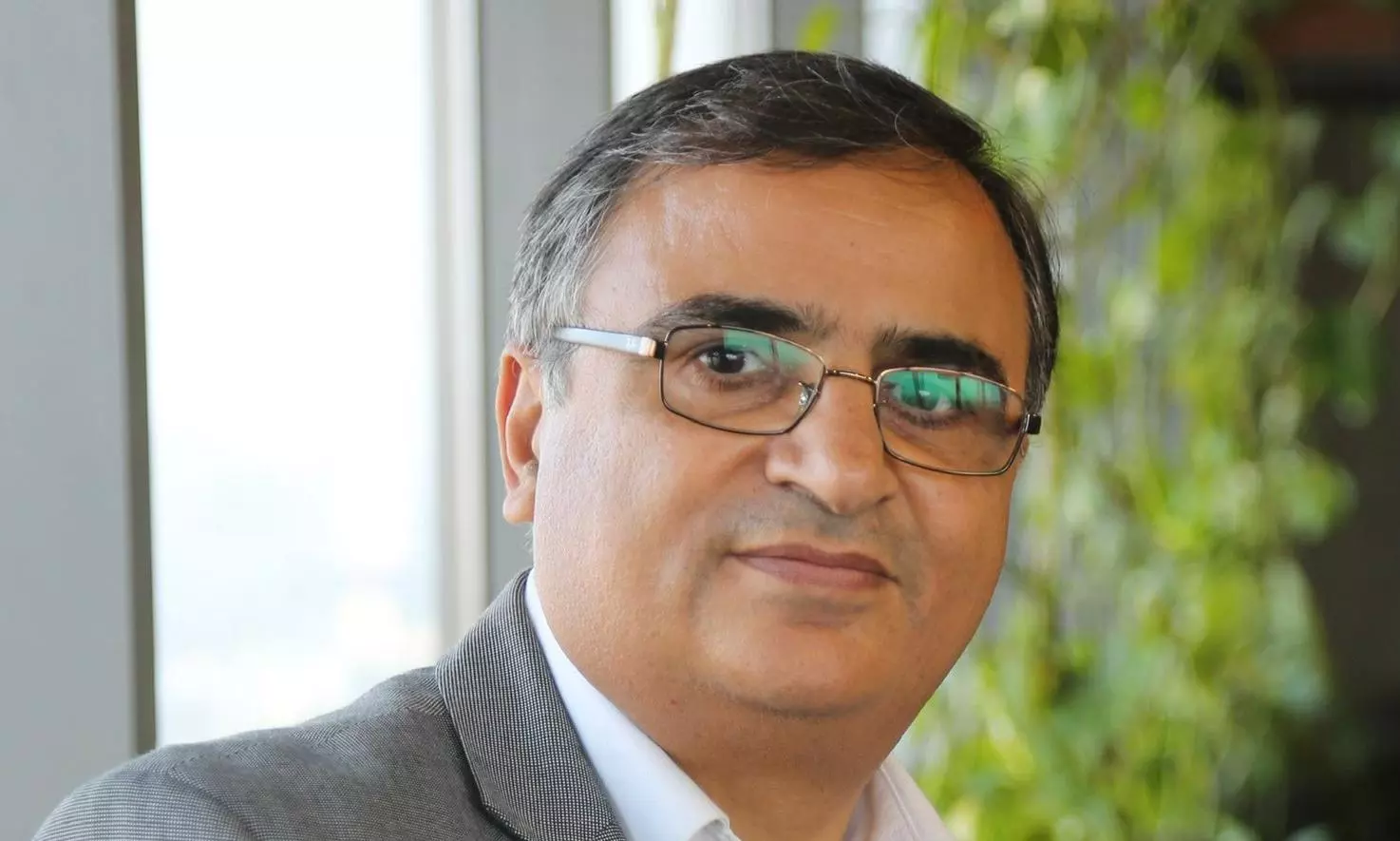
How herbicide-tolerant varieties can make rice farming less water-intensive
Ajai Rana, newly-elected chairman of Federation of Seed Industry of India, talks about the advantages of direct seeding, and more

The introduction of herbicide-tolerant rice varieties and hybrids should spur the adoption of direct-seeded rice cultivation practices, resulting in lower emission, less water usage and lower labour costs, Ajai Rana, the newly-elected chairman of the Federation of Seed Industry of India (FSII), said in a Zoom interview to The Federal.
Rana, who is the Founder Managing Director and CEO of Savannah Seeds, headquartered in Gurugram, said his company will introduce rice hybrids tolerant to the herbicide imazethapyr from the 2024 monsoon season, once they pass the trials and are approved for cultivation. Imazethapyr is a broad-spectrum herbicide, which means it can kill a variety of grassy and broad-leaf weeds.
The technology has been in use in the US for almost 20 years, Rana said.
Herbicide-tolerant
Meanwhile, the public sector, Delhi-based Indian Agricultural Research Institute (IARI) has also introduced imazethapyr tolerant basmati varieties, which Prime Minister Narendra Modi released in 2021, but will be available for commercial cultivation next year, IARI Director A K Singh said. The trait has also been introduced in a common rice variety developed by the National Rice Research Institute (NRRI), Cuttack, he said.
In both cases, the herbicide-tolerant trait has been developed through conventional, mutation breeding and not through genetic modification (GMO), which though proven safe for more than two decades, still raises hackles in this country.
In fact, anti-GM activists have sought to block the commercial cultivation of GM mustard – which the government approved in October last year – on the grounds that it is tolerant to the herbicide glufosinate. They allege that herbicide-tolerant crops will result in overuse of herbicides and lead to the development of resistant weeds.
Even the government has fed the fear of herbicides by insisting that the herbicide glyphosate should be sprayed only by licensed pest control operators.
Direct seeding
Rice is India’s largest crop and is grown in a variety of agro-climatic conditions. Where groundwater is used, as in Punjab and Haryana, the direct seeding of rice (DSR) method can result in significant savings of groundwater, fuel and emissions. This is because the rice seedlings grown in nurseries are not transplanted in puddled and flooded fields.
Direct seeding, as the term implies, means sowing the rice seed in moist fields without transplanting seedlings from nurseries. The fields are not flooded. The seeding can be done by broadcasting or by using seed drills. Germinated seed can also be sown by broadcasting or using a revolving perforated drum in puddled fields (fields made slushy).
Rice itself does not need a lot of water. Fields are flooded only to prevent the growth of weeds. Rana estimates that rice farmers in Punjab can save about ₹8,000 an acre by opting for direct seeding. The gains can be as high as ₹12,000 an acre in central India, he says, where rice grown back-to-back has resulted in the spread of wild rice, which looks like normal rice.
DSR has not caught on because of weed growth. According to a report in the Indian Express, the area under DSR in Punjab slid massively from 5.62 lakh hectares in 2021 to 80,000 hectares last year.
Strong interest in R&D
FSII was born in acrimony in 2016 when about 10 companies broke away from the National Seed Association of India over the issue of patenting and price controls. There are currently about 50 FSII members, many of them multinationals, with a strong interest in research and development.
Rana said each FSII member spends about 10 per cent of its revenue on R&D and together account for more than half of the private sector’s seed market share. Though the private sector is focussed on hybrids, as farmers have to buy the seed year after year unlike open pollinating varieties (OPV) whose grain farmers can use as seed, Rana said the private sector is expanding its portfolio of OPV seed varieties. This comes as even smallholder farmers were realising the benefit of quality seed, as a result of which the seed replacement rate of all crops was increasing.
Rana also spoke about the interest of FSII members in helping reduce import dependence for cooking oil by introducing innovative seed technologies in mustard and soybean. Though India is lagging China in the adoption of rice hybrids, this is set to change, he said. He also wants a block-level rice mission in eastern and north-eastern Indian to raise rice productivity.

